Peloton Tread review: A treadmill that pushes you to run better and get stronger
Peloton Tread offers thousands of live classes that make indoor sweat sessions more enjoyable

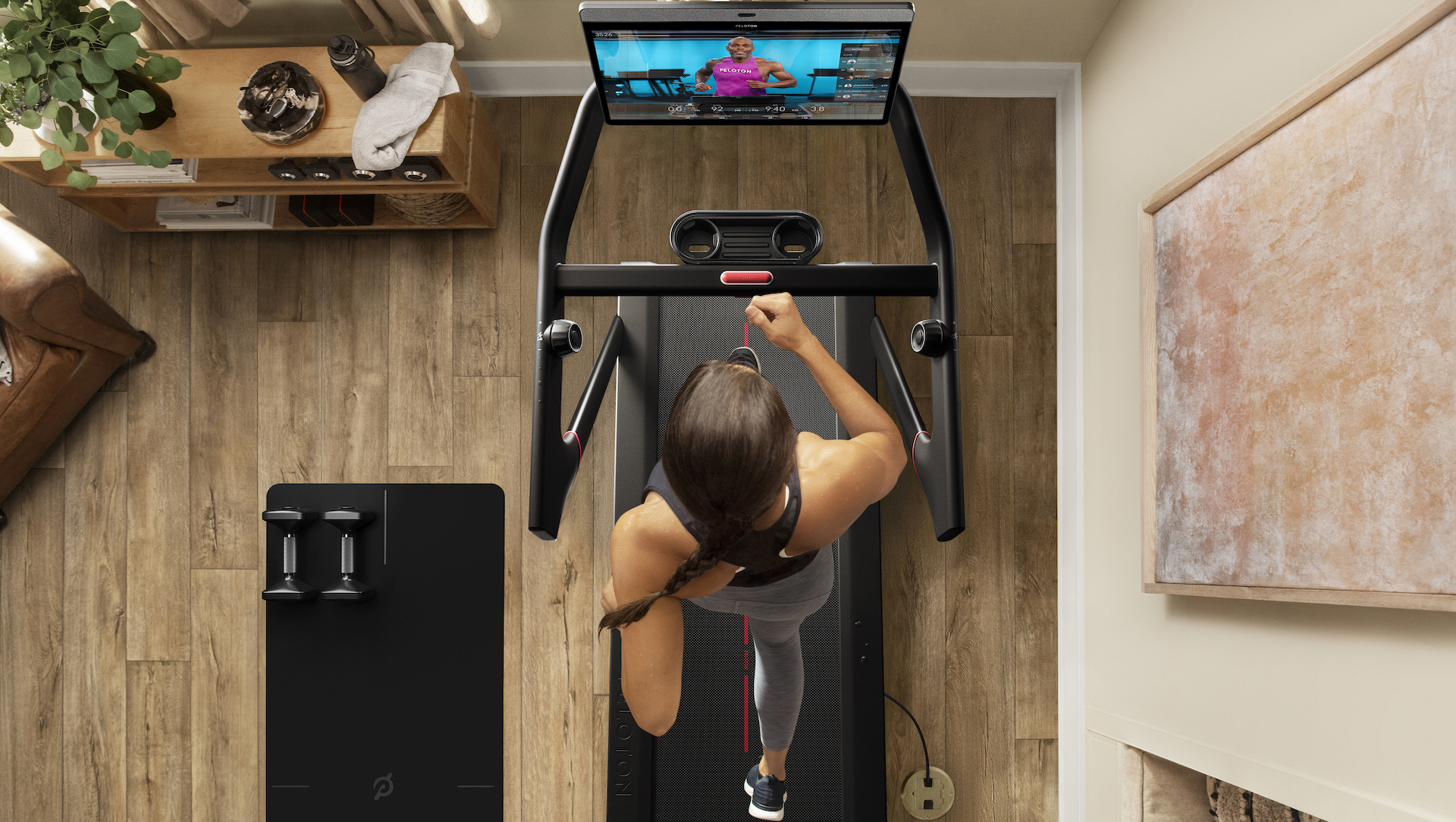
Peloton Tread is expensive, but its mix of informative trainers, off-the-machine strength classes and handy stretching techniques make it an incredibly versatile piece of kit. Live leaderboards and constant progress updates mean it’s easy to get addicted to the social community of fellow fitness heads, even if you’re not a massive fan of running.
-
+
It encourages you to get in shape
-
+
Caters for all fitness abilities
-
+
Treadmill is quiet but capable
-
+
Awesome design and slick tech
-
-
Continual monthly outgoings
-
-
Some trainers get annoying
-
-
Strength classes won’t replace the gym
Why you can trust T3

Peloton Tread comes from the same New York-based company that seemingly took the world of home fitness by storm with its innovative exercise bike, which cleverly fuses cutting edge technology with both live and on-demand fitness classes, allowing users to work up a sweat from the comfort of their own homes.
Unfortunately, not everyone likes indoor cycling and the thought of endlessly cranking up the resistance, while simultaneously dealing with a shouty instructor and chafed thighs can prove the biggest barrier to entry. Now, however, the purveyors of insanely addictive online spin classes also cater for runners.
Thankfully, Peloton has gone back to its fancy design studio and produced what might be the best treadmill on sale today. It's certainly the best looking. Compact, elegant and brilliantly simple, the Peloton Tread would score plenty of points with us if it were merely a treadmill, but the fact it also lives in Peloton’s ecosystem of live and on-demand classes makes it even more appealing.
But what is it like to live with? Well, I’ve been glued to that 23.8-inch HD touchscreen for a few weeks in an attempt to find out, getting to grips with everything from the toughest High-Intensity Interval Training run classes to the more mellow introductions to Yoga.
As someone who doesn’t particularly enjoy running, I was pleasantly surprised at how addictive the world of Peloton is. Read on to find out why…
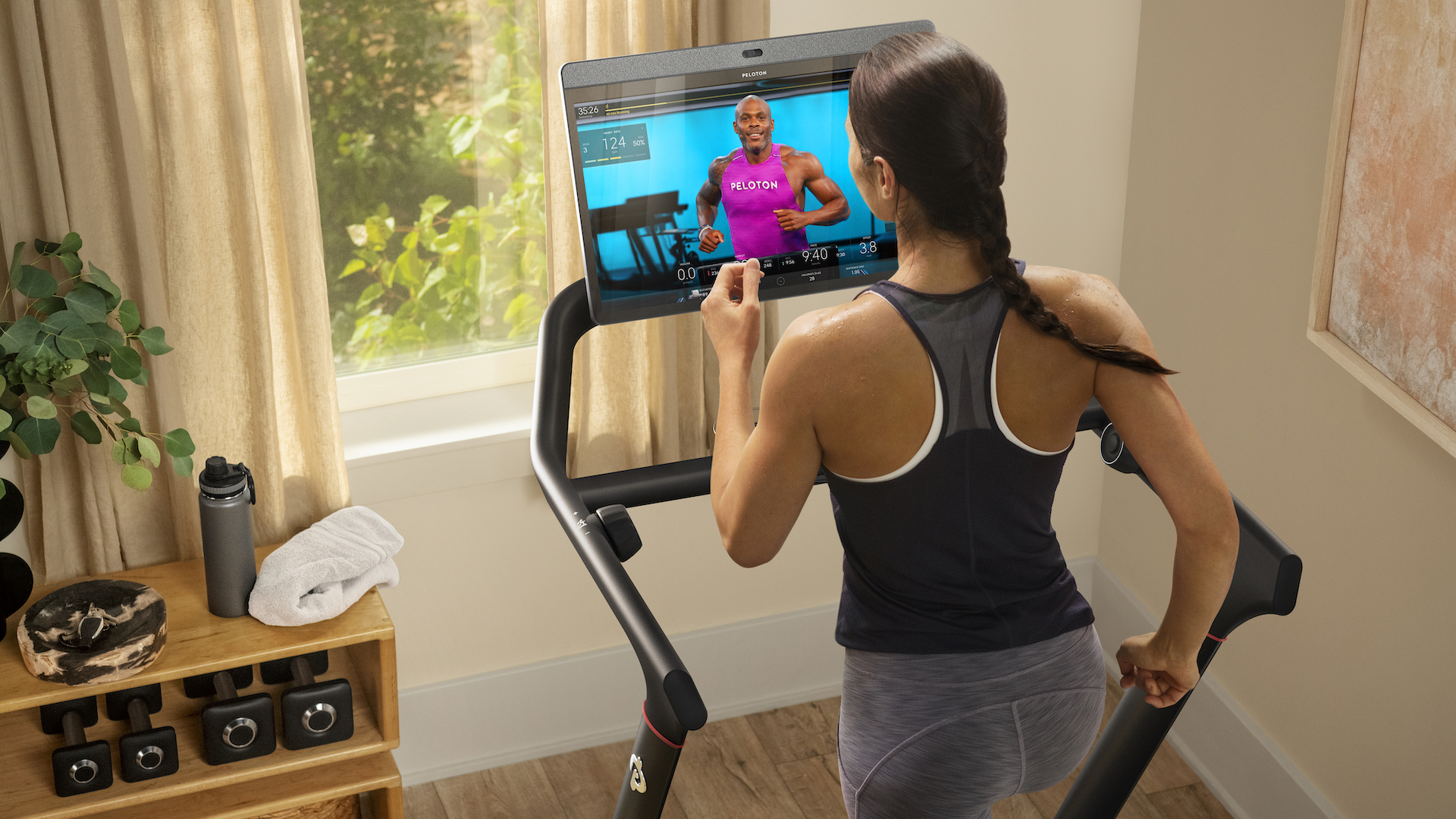
Peloton Tread Review: Price and availability
Peloton Tread is available now and costs £2,295/$2,495 to buy the most package outright. This buys the treadmill with home delivery and a 12-month warranty. Alternatively, you can pay £59/$64 a month for 39 months.
There are also packages ranging from £2,570/$2,765 to £2,870/$3,065 that include extras, such as dumbbells, workout mats, a heart rate monitor and wireless headphones. These can also be purchased on a monthly payment plan.
On top of this, you’ll have to fork out £39/$39 a month to unlock the full library of Peloton Tread classes, as well as access the live leaderboards and record and access to your ongoing workout metrics. Alternatively, gain access to the Peloton classes for £12.99/$12.99 a month, but you’ll lose all of the connected features.
Peloton Tread is available now from Peloton.
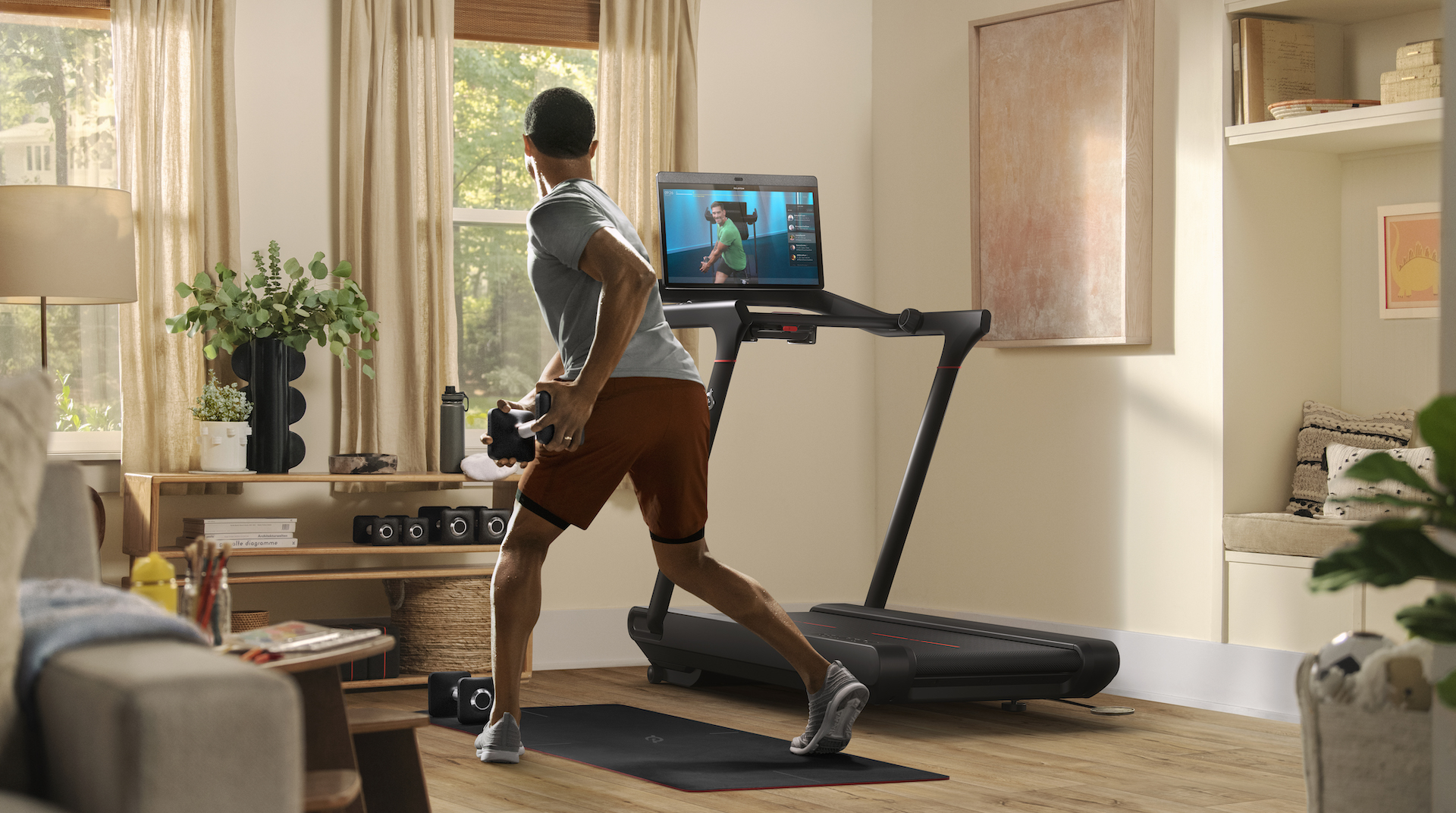
Peloton Tread Review: Set-up and first impressions
Although comparatively expensive, the beauty of Peloton products is the 'customer journey' (ugh) and even the initial delivery feels like a ‘white glove’ experience. A branded van turns up with two branded Peloton employees, who then set about assembling the Tread in a location of your choice. Want it in the loft? That’s fine, the poor Peloton blokes will haul it up there for you.
Once assembled - and any additional weights and accessories unboxed - the Peloton staff will then take you through the initial stages of set-up, which includes creating a membership package with the Peloton app.
As mentioned in the section above, it costs £39/$39 a month to gain full access to the world of Peloton and seeing as you’ve just spent £2,295 on the treadmill itself, it seems foolish to miss out on all of the features offered here.
Interaction is via the massive HD touchscreen display, which also features a small soundbar at the top for properly immersive audio. There is a volume rocker switch on the side of the screen and a power off button at the rear, although the screen will automatically shut down when not in use.
Once signed in and handsome profile image uploaded, either via the onboard 8MP camera or through socials, it’s possible to connect to Facebook, Strava and a handful of other popular fitness apps in order to track both Peloton and real-world workouts (or merely to brag to mates). Bluetooth compatibility also means that things like wireless headphones and heart rate monitors can be added - although I did find the Bluetooth pairing process for two different sets of headphones really slow.
It’s probably worth mentioning now that you’ll need a good wireless internet connection in order to get the most out of Peloton Tread, so this could mean looking into wireless extenders and routers if you are working out in the shed or garage.
The treadmill itself (aside from the gorgeous design and lightweight carbon steel frame) is pretty standard fare, with a 150 cm-wide textured PVC and woven nylon deck powered by an electric motor. It’s capable of speeds ranging from 0km/h to an eye-watering 20km/h (12.5mph) and can hit inclines of up to 12.5%, so there’s no excuse to not work hard.
Seeing as it’s not as physically robust as a treadmill you might find in a commercial gym, the suggested weight range is 48kg to 136kg and it is suitable for heights ranging from 4'11" to 6’4”.
Cleverly, the speed and incline adjustment is taken care of via two ergonomically placed rotary dials that allow for quick changes by rolling either backwards or forwards when running. There’s also a button in the centre of said dial that jumps either the speed or incline up by a whole number, rather than fractions.
First impressions? It looks great and is incredibly intuitive to use. The bottom line, it feels like you get what you pay for.
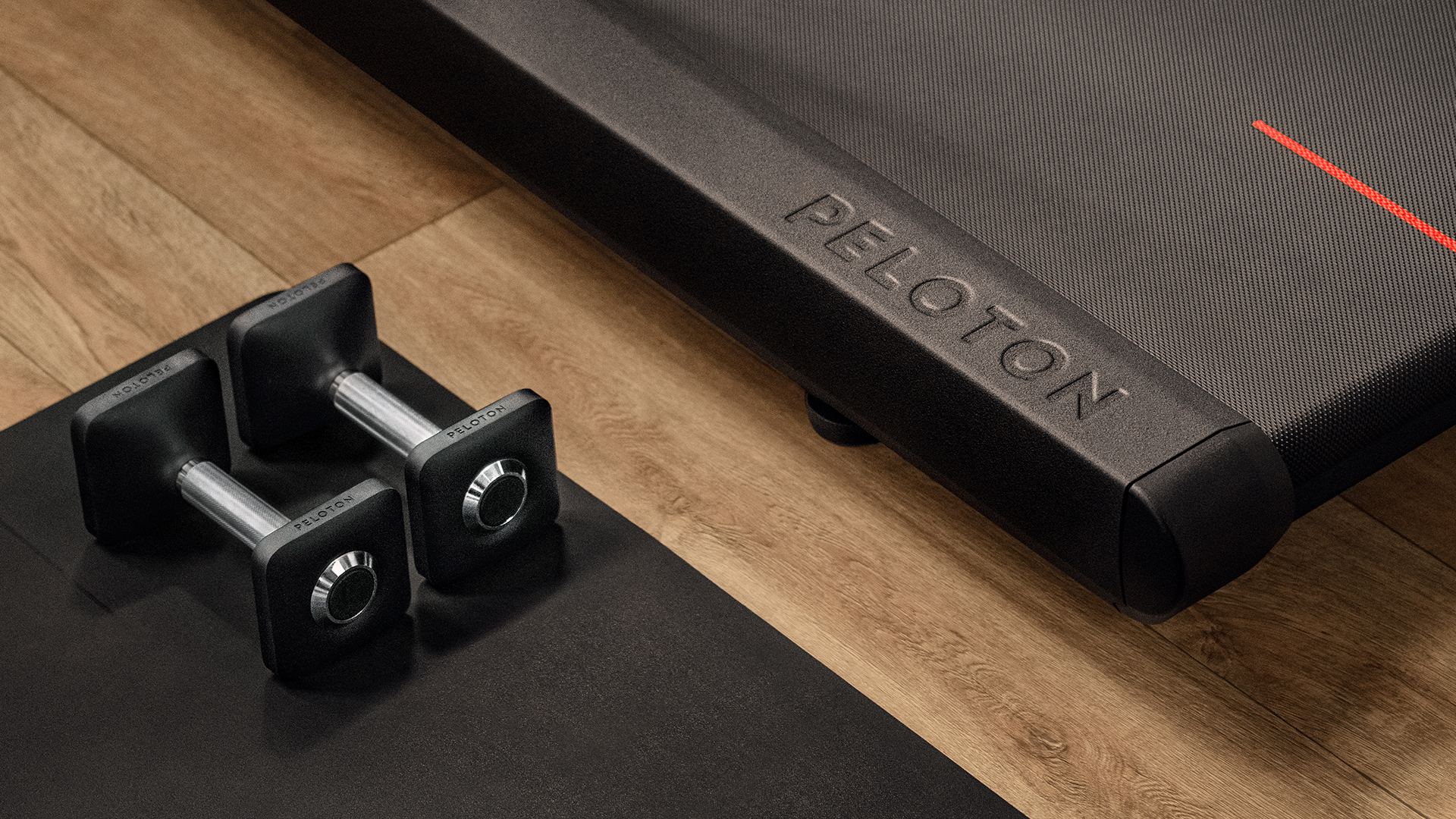
Peloton Tread Review: Workout performance
Peloton Tread looks and feels slick from the moment you step onto the deck, that crisp touchscreen display illuminating with a quick tap. From here, the software sets up your home screen with a plethora of different options, from a detailed workout calendar to myriad suggestions for daily workouts or longer training plans.
It’s possible to filter live or on-demand classes by musical tastes, intensity and even by a favoured instructor. Plus, a neat new ‘stacking’ system makes it possible to select multiple workouts, including warm-ups, off-the-tread strength training, yoga and cool downs, and then add them to a stack so you can seamlessly flow from one training session to the other.
All studio classes are filmed at Peloton’s shiny New York complex and typically see an extremely chiselled male or female bobbing along the running deck, talking you through the entire workout. Some trainers and sessions go deep into the mechanics of correct running form, while others simply riff on… stuff. You know, stuff like their favourite punk bands from the 1970s (if you select a particularly music theme).
The endless waffling can get a bit annoying but there’s pretty much a workout to suit most moods, from ultra-chilled, positive thinking recovery runs to beastly HIIT sessions.
Above all else, it is the live leaderboards and Peloton trainer interaction during the live classes that really spur you on. In fact, the constant chat from the trainer throughout any workout is enough to distract the mind from the pain in the legs. It’s also weirdly motivating, even though you know the trainer can’t see you nor judge the effort you’re putting in.
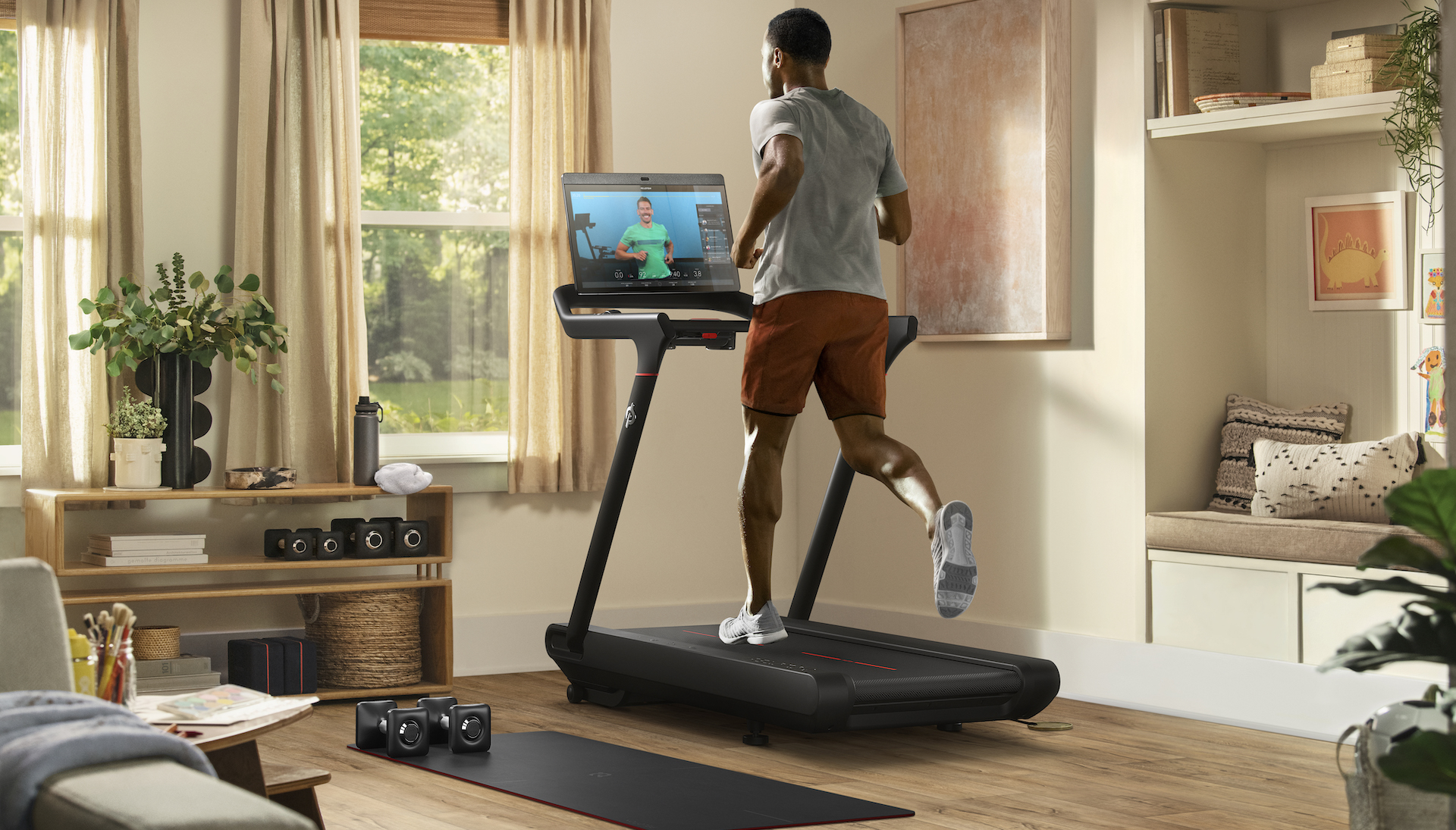
Yes, there's an 8MP camera but this is switched off by default and can only be used to chat to friends that you follow and those who have the same piece of equipment (bike or tread).
Similarly, the live leaderboards, which constantly shuffle up and down depending on the effort you are putting in, inject that little impetus to encourage an extra roll of the speed dial to add a touch more speed or incline during a workout. After all, nobody wants to wallow at the bottom of a leaderboard, do they?
Alas, there aren’t as many live classes as you’d first think and, being an American company, some of these start at odd hours in the UK. That said, there are ‘Encore’ sessions, which repeat recent live workouts and couple it with a live leaderboard, rather than running against previous Peloton member’s times in the on-demand classes.
It is here, where a smaller number of runners are competing live, that the combative spirit really comes alive, as everyone in that session starts with a score of 0 and works their way up the ladder as the class progresses. It’s a surefire way of pushing yourself to the absolute limit in search of Peloton glory (or at least a little shout out from the instructor).
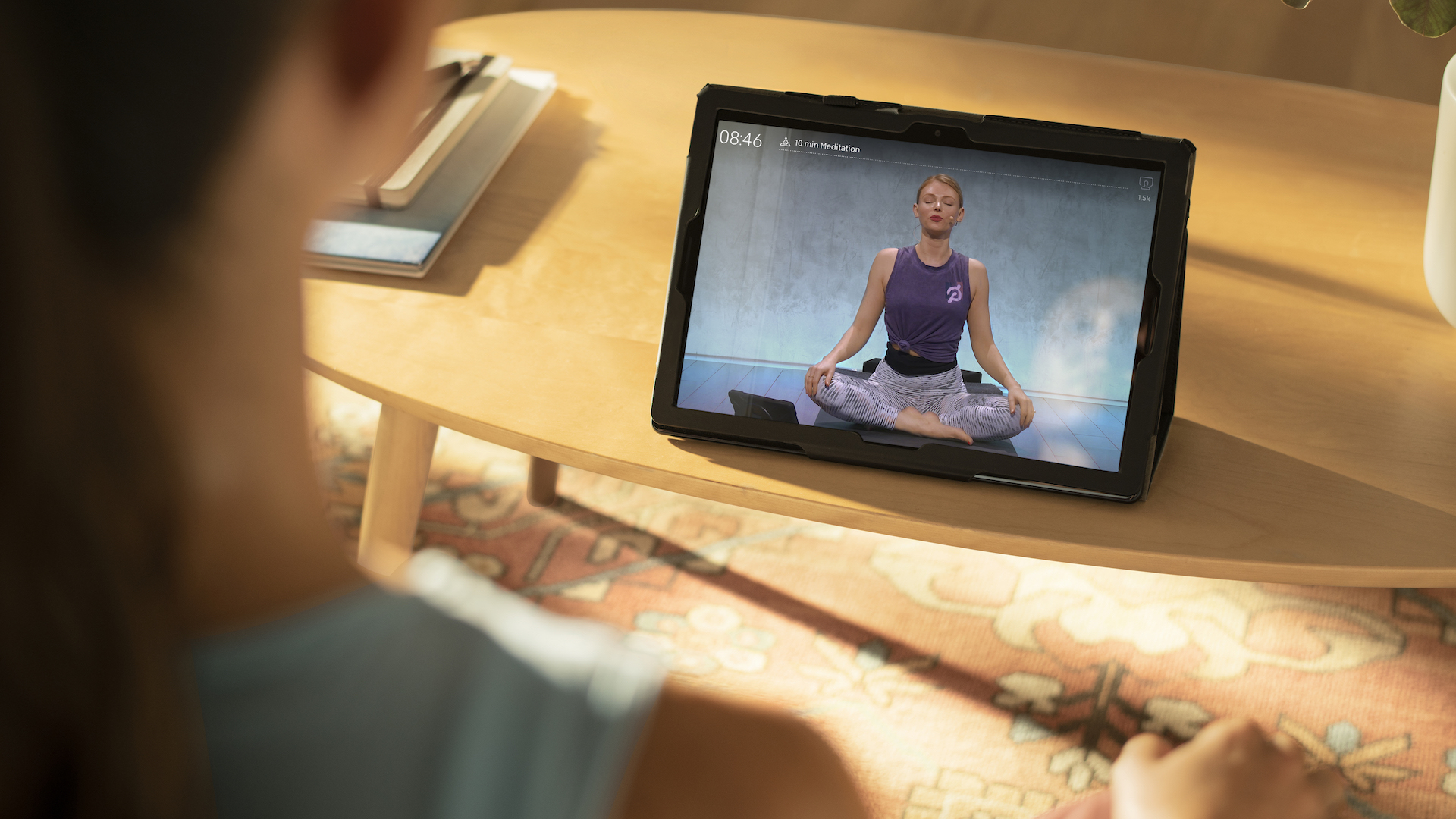
Peloton Tread Review: Strength classes and off-the-tread training
In order to increase the longevity of, let’s face it, a very expensive purchase, Peloton also offers strength classes and boot camps that aim to improve cardio abilities, strengthen key muscle groups and generally tone away any excess flab.
As such, there are packages that include a set of neat dumbbells, resistance bands and a comfortable yoga mat in order to work out on the floor next to the treadmill. Similar to apps like Fiit and Chris Hemsworth’s Centr, these short sessions require little more than a set of dumbbells and your body weight, although some incorporate resistance bands, too.
Due to this, there is a heavy reliance on slow, controlled reps or simply loooooads of reps in order to get a burn in the muscle and for many, the ability to gradually overload the weight will require the purchase of additional dumbbells or, better still, a good set of adjustable dumbbells.
I’ve said it before, but the thing that hampers many “at-home” strength apps is a lack of available equipment and with no barbell squats, bench pressing, heavy deadlifts or chunky leg extensions, they aren’t really designed for anyone looking to get properly ‘swole’. But that’s not really the point here.
After all, there aren’t many gym sessions that involve a punishing 30-minute treadmill class, 10-minutes of non-stop and intense core strength work, all followed up by some professionally-led yoga. I can recall a good number of my gym-based sessions involving aimlessly wandering around equipment trying to muster up the energy to lift a weight.
But unlike Fiit, which attempts to count reps and calories burnt with its own device, Peleton’s off-Tread strength workouts rely solely on a heart rate monitor as any indication of effort. As a result, there aren’t really any leaderboards to get fired up by, so it’s all on you to grind out every session to see results.
The addition of stretching sessions and introductory yoga are welcome here because it is highly likely you'll push it to the point of soreness and niggles in the first few weeks. Selecting these cool down classes or increasing flexibility with a spot of yoga feels like an added bonus.
Peloton Tread Review: Verdict
It is very possible to buy a much cheaper treadmill (we've got a massive list of them here) and then fork out £12.99 for access to Peloton’s on-demand classes in order to get somewhere near the full experience, but it is the entire ecosystem that makes working out on this treadmill so addictive.
As with the rise of apps like Strava, RunKeeper and MapMyRide, Peleton plays on the social element and rewards users with badges, kudos, points and, better still, live shoutouts from real-life instructors in order to keep motivation high.
In order to justify the lofty price, the smartphone app and touchscreen display on the treadmill itself play nicely and it’s possible to scan the schedule and book live classes when you have a break at work, setting up reminders so you never miss a session.
Alternatively, if you are on the move, it’s easy enough to bust out a quick smartphone or tablet-based bodyweight strength class anywhere in the world, so long as you have enough room to perform a few push-ups. Rip up the gym membership, cancel the personal trainer and it starts to feel like good value.
The treadmill itself is beautifully put together and the technology it packs is state of the art but, at 132kg, it is heavy and requires a professional initial set-up (which thankfully, it comes with). You’ll also need a fair amount of space and you can’t tip it up to store it, like rival machines.
It might be a sign of the times but Peloton Tread feels about as 'social' as any group exercise gets at the moment, which is a little bit depressing if you think too hard about it.
But if you find traditional treadmill sessions boring, or lack the enthusiasm to start grinding out the pavement miles, there will be a Peloton workout to motivate you. And like endlessly scrolling Instagram, it’s very difficult to tear yourself away from that massive screen once locked into a tough running session. But if you want to lose weight, get stronger and become a better runner, that can only be a good thing, can't it?
Sign up to the T3 newsletter for smarter living straight to your inbox
Get all the latest news, reviews, deals and buying guides on gorgeous tech, home and active products from the T3 experts
Leon has been writing about automotive and consumer tech for longer than he cares to divulge. When he’s not testing the latest fitness wearable and action camera, he’s out in a shed fawning over his motorcycles or trying not to kill himself on a mountain bike/surfboard/other extreme thing. He's also a man who knows his tools, and he's provided much of T3's drills coverage over the years, all without injuring himself.
-
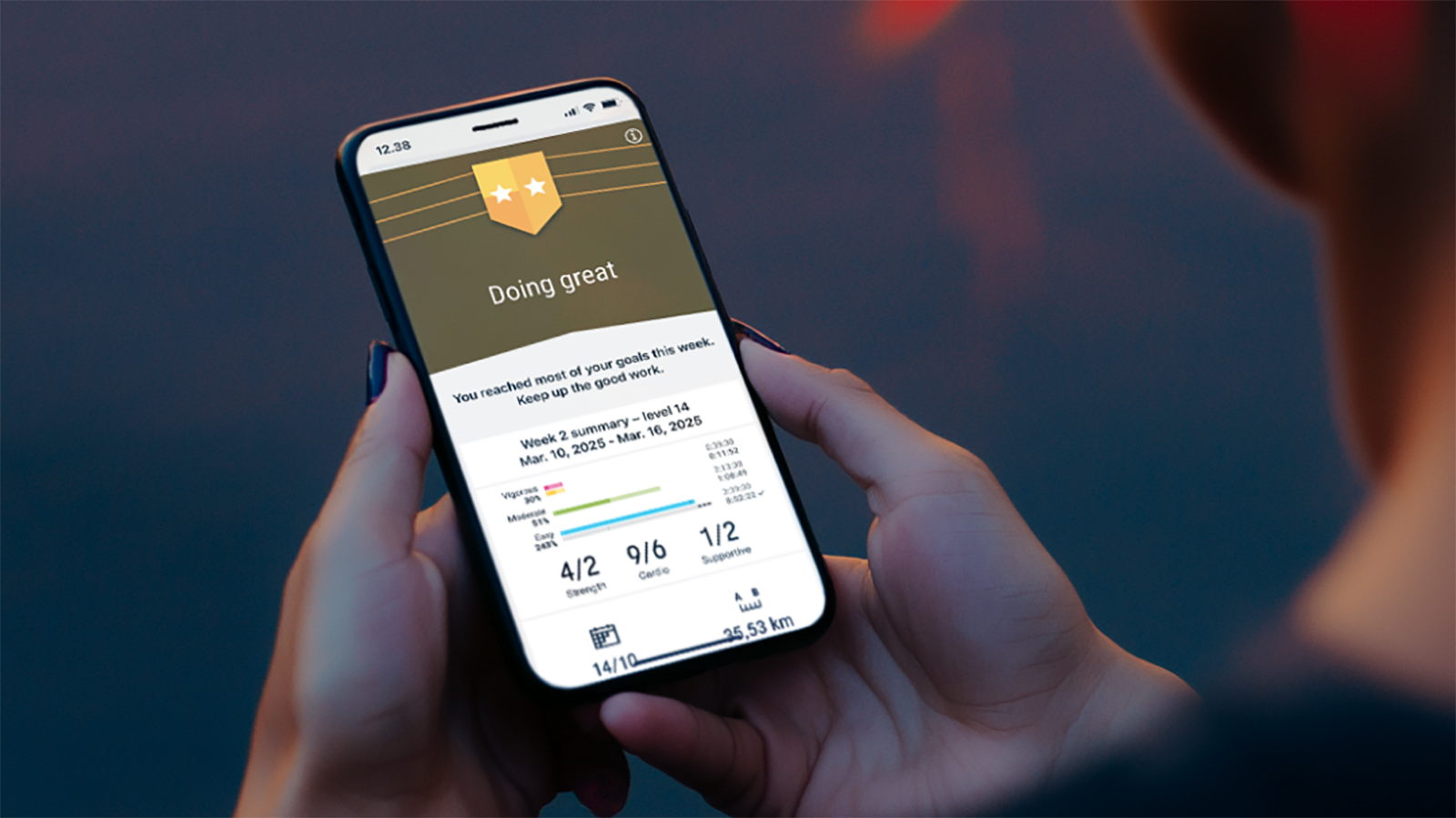 Polar’s new subscription feature lands in the shadow of Garmin’s Connect+ rollout
Polar’s new subscription feature lands in the shadow of Garmin’s Connect+ rolloutPR genius or timing disaster? Polar’s new Fitness Programme adds adaptive training to its ecosystem
By Matt Kollat Published
-
 New Orient Star watches offer a glimpse of the magic within
New Orient Star watches offer a glimpse of the magic withinThere are two new skeleton pieces
By Sam Cross Published
-
 Netflix's most surprising 100%-rated sci-fi series returns with gorgeous trailer
Netflix's most surprising 100%-rated sci-fi series returns with gorgeous trailerLove Death + Robots is back for more
By Max Freeman-Mills Published